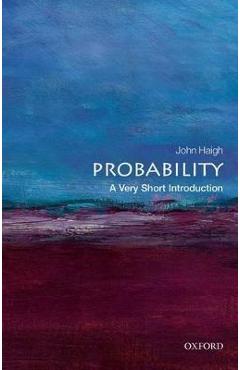Probability: A Very Short Introduction | John Haigh
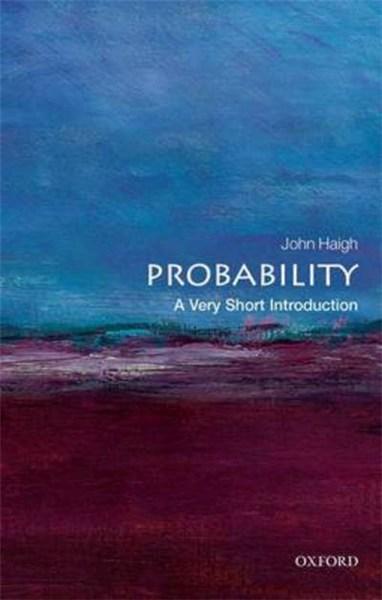
Detalii Probability: A Very Short Introduction
carturesti.ro
50 Lei
Carte straina
Oxford University Press
Probability: A Very Short Introduction - Disponibil la carturesti.ro
Pe YEO găsești Probability: A Very Short Introduction de la Oxford University Press, în categoria Carte straina.
Indiferent de nevoile tale, Probability: A Very Short Introduction | John Haigh din categoria Carte straina îți poate aduce un echilibru perfect între calitate și preț, cu avantaje practice și moderne.
Caracteristici și Avantaje ale produsului Probability: A Very Short Introduction
- Departament: gaming-carti-birotica
- Ideal pentru pasionații de jocuri, birotică și distracție online.
Preț: 50 Lei
Caracteristicile produsului Probability: A Very Short Introduction
- Brand: Oxford University Press
- Categoria: Carte straina
- Magazin: carturesti.ro
- Ultima actualizare: 27-10-2025 01:24:43
Comandă Probability: A Very Short Introduction Online, Simplu și Rapid
Prin intermediul platformei YEO, poți comanda Probability: A Very Short Introduction de la carturesti.ro rapid și în siguranță. Bucură-te de o experiență de cumpărături online optimizată și descoperă cele mai bune oferte actualizate constant.
Descriere magazin:
Making good decisions under conditions of uncertainty - which is the norm - requires a sound appreciation of the way random chance works. As analysis and modelling of most aspects of the world, and all measurement, are necessarily imprecise and involve uncertainties of varying degrees, the understanding and management of probabilities is central to much work in the sciences and economics. In this Very Short Introduction, John Haigh introduces the ideas of probability and different philosophical approaches to probability, and gives a brief account of the history of development of probability theory, from Galileo and Pascal to Bayes, Laplace, Poisson, and Markov. He describes the basic probability distributions, and goes on to discuss a wide range of applications in science, economics, and a variety of other contexts such as games and betting. He concludes with an intriguing discussion of coincidences and some curious paradoxes.

Produse asemănătoare

Probability: A Very Short Introduction, Paperback/John Haigh
![]() elefant.ro
elefant.ro
Actualizat in 27/10/2025
72.99 Lei
Produse marca Oxford University Press
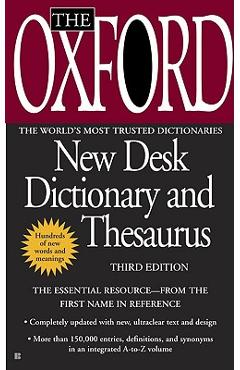
The Oxford New Desk Dictionary and Thesaurus - Oxford University Press
![]() libris.ro
libris.ro
Actualizat in 28/10/2025
55.75 Lei
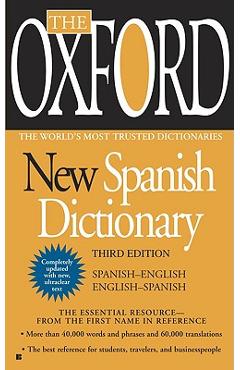
The Oxford New Spanish Dictionary: Third Edition - Oxford University Press
![]() libris.ro
libris.ro
Actualizat in 28/10/2025
50.17 Lei
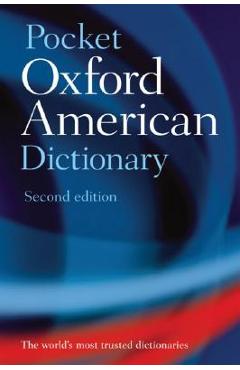
Pocket Oxford American Dictionary - Oxford University Press
![]() libris.ro
libris.ro
Actualizat in 28/10/2025
77.84 Lei

The Oxford New Portuguese Dictionary: Portuguese-English, English-Portuguese - Oxford University Press
![]() libris.ro
libris.ro
Actualizat in 28/10/2025
50.17 Lei
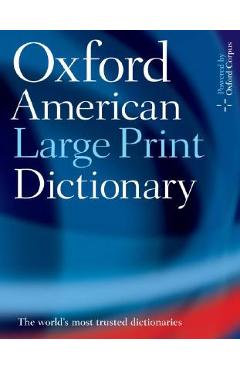
Oxford American Large Print Dictionary - Oxford University Press
![]() libris.ro
libris.ro
Actualizat in 28/10/2025
150.38 Lei

Catholic Bible-RSV-Large Print - Oxford University Press
![]() libris.ro
libris.ro
Actualizat in 28/10/2025
318.06 Lei
